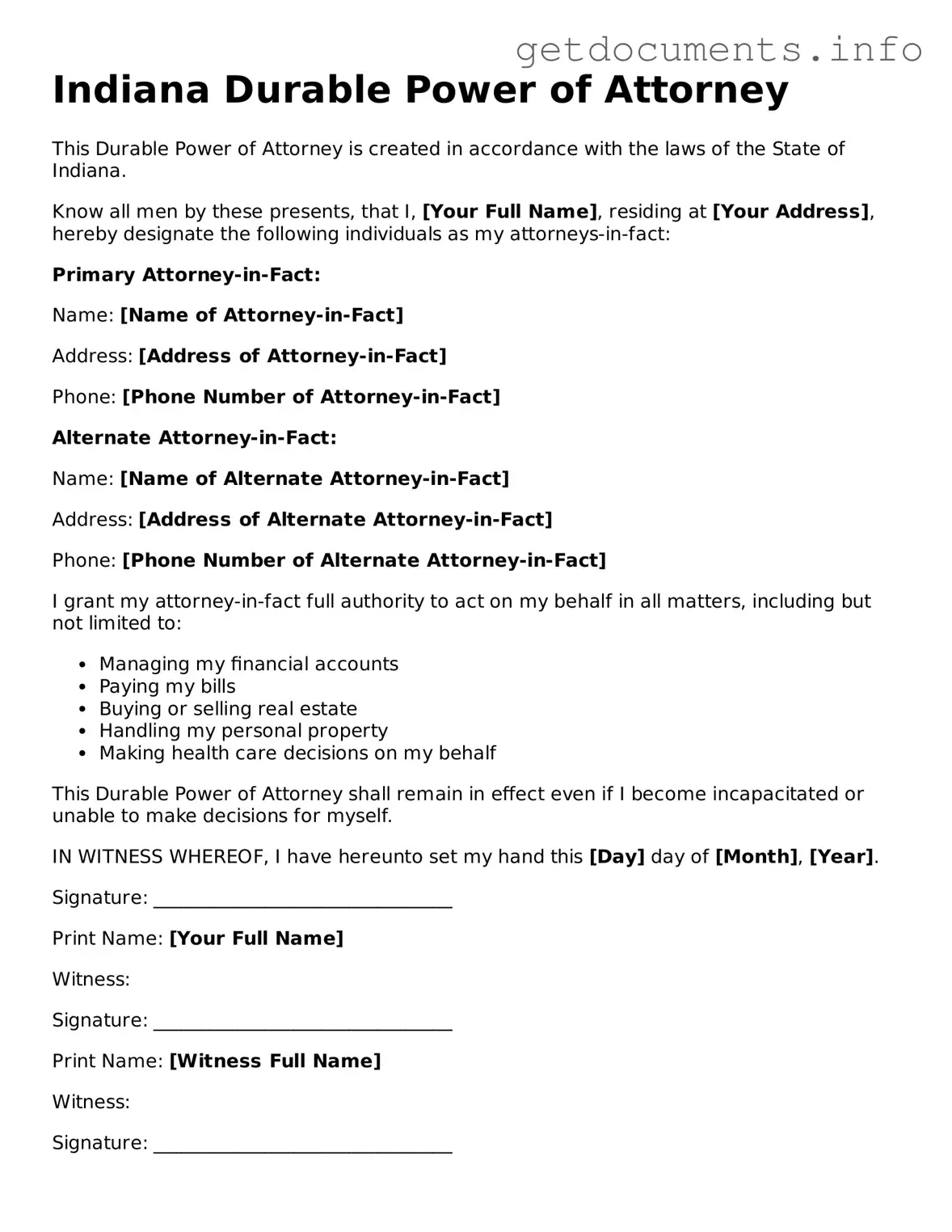Free Durable Power of Attorney Template for Indiana
A Durable Power of Attorney in Indiana is a legal document that allows you to designate someone to make decisions on your behalf if you become unable to do so. This form ensures that your financial and healthcare choices are respected, even if you lose the capacity to communicate them yourself. To get started on securing your future, fill out the form by clicking the button below.
Access Durable Power of Attorney Editor

Free Durable Power of Attorney Template for Indiana
Access Durable Power of Attorney Editor
Got places to be? Complete the form fast
Fill out Durable Power of Attorney online and avoid printing or scanning.
Access Durable Power of Attorney Editor
or
⇩ PDF File
